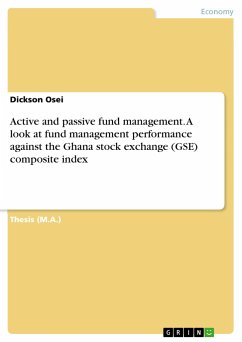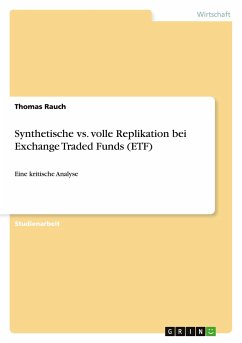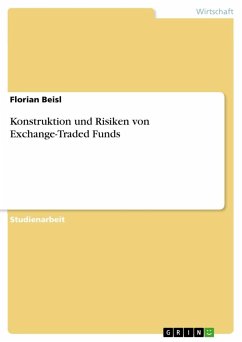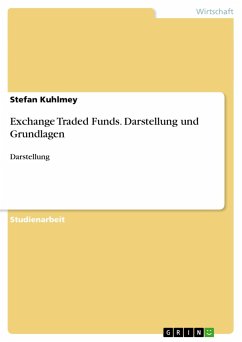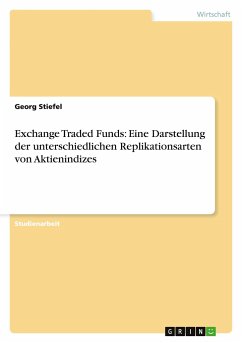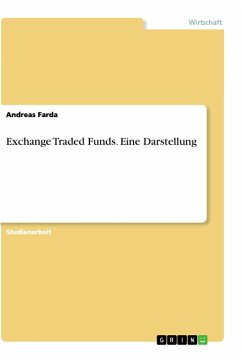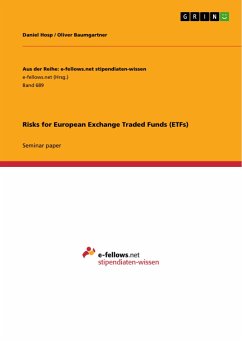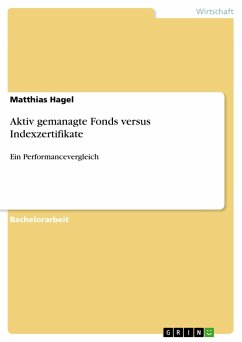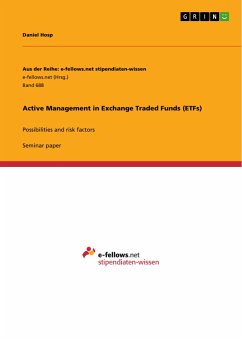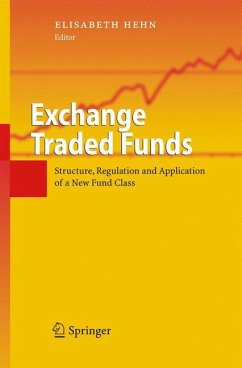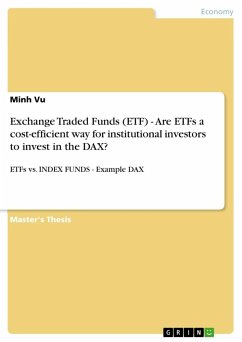
Exchange Traded Funds (ETF) - Are ETFs a cost-efficient way for institutional investors to invest in the DAX?
ETFs vs. INDEX FUNDS - Example DAX

PAYBACK Punkte
0 °P sammeln!
Master's Thesis from the year 2011 in the subject Business economics - Banking, Stock Exchanges, Insurance, Accounting, grade: 2,0, Grenoble Ecole de Management, language: English, abstract: 1AbstractAs the ETF industry has grown by leaps and bounds in recent years, inves-tors and advisors are finding themselves with more options than ever before. There's a vast universe of ETF investment options available, and once all opportunities are narrowed down and aligned with particular investment ideology, investors evaluate the ETF options on number of different criteria to identify and spot the mos...
Master's Thesis from the year 2011 in the subject Business economics - Banking, Stock Exchanges, Insurance, Accounting, grade: 2,0, Grenoble Ecole de Management, language: English, abstract: 1AbstractAs the ETF industry has grown by leaps and bounds in recent years, inves-tors and advisors are finding themselves with more options than ever before. There's a vast universe of ETF investment options available, and once all opportunities are narrowed down and aligned with particular investment ideology, investors evaluate the ETF options on number of different criteria to identify and spot the most attractive one of all.This paper examines the advantages and disadvantages of ETFs compared to index funds when investing in the German funds market. It examines total and average return, volatility and tracking error of ETFs versus index funds tracking the DAX. Also a regression analysis is done in order to draw conclusion on the funds' alpha, beta and coefficient determinant. It can be concluded that the hypothesis of whether ETFs are a cost-efficient way for institutional investors to invest in the DAX stands and evidence is provided. Results indicate that ETFs achieve higher average returns and less average volatili-ty. In addition, ETFs pursue a better full replication strategy than index funds. As a result, the tracking error for ETFs is lower than the index funds'.2IntroductionSome studies have revealed that institutional investors put less emphasis on trading through stock exchange but prefer to directly create and redeem ex-change traded funds. An exchange-traded fund is a type of investment product that represent basket of securities such as the DAX index and are made available only through brokers and advisors. It was in 1993, that the American Stock Exchange launched the Spiders, SPDR to track the S&P 500. It was the first exchange traded product on markets with more coming later on. Diamonds was launched in 1998 which tracked the Dow Jones in industrial average and Cubes in 1999, which tracked the NASDAQ 100But it was the mutual funds that were the most popular with institutional and private investors both for quite some time. This trend however is only now beginning to change as institutions find that ETFs can help attain a variety of goals that many other investment vehicles simply cannot provide. A recent survey from Greenwich Associates (carried out in 2010) that polled 70 investment firms revealed that ETF use is rising sharply. Among the highlights of the study: use of ETFs among pension funds, endowments and charitable foundations has grown to about 14%. ...




